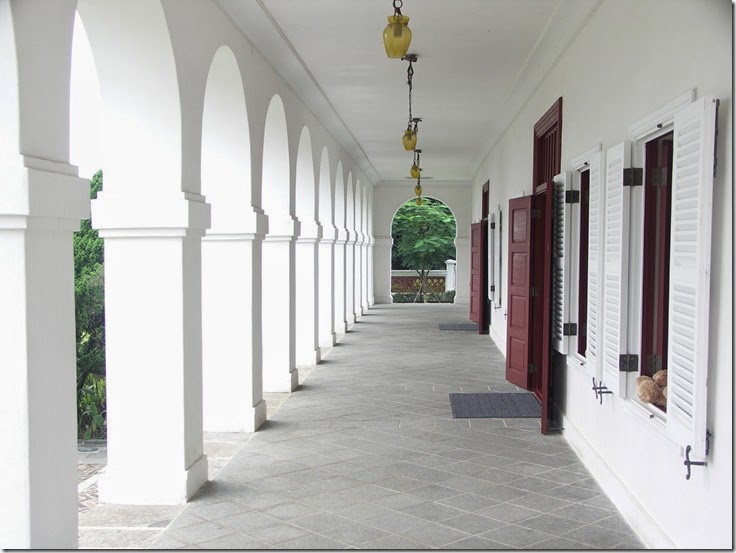I was wondering if I could ask for your help in deciphering the original Indic name of a monk that has only been preserved in Chinese transliteration. In EA 4.4 (CBETA T125 Fascicle 3 0557c03), which lists the Buddha’s eminent disciples (and what they are known for), there is a monk named “優鉗摩尼江” (yōu qián móní jiāng) bhiksu and he is known for "不與人語視地而行" which I, with my incredibly poor Chinese, hesitantly translate as “not speaking with human beings and looking at the ground [while] walking”. Would you happen to know what his Indic name would be?
There seems to be a parallel in T126 (CBETA T126 Fascicle 1 0831c17) where “昂誐帝哩野” bhiksu is known for 於一切時而能少語 which I, again, poorly translate as “speaking little at all times”. However, in the uddana at [0833a17] the said bhiksu is described as 少語恒默然 “speaking little and always silent”. There seems to be a difference in nuance between “speaking little at all times” and “always silent” and it seems that "少語恒默然" has more of a relation to "不與人語視地而行" than " 於一切時而能少語".
What I found interesting about the above passages is that they seem to go against the prohibition in the Pavāraṇā Khandhaka (and the parallels to the others Vinayas preserved in Chinese translations) at Vin 1.159 [PTS] where the Buddha forbids the monks from the practice of silence (mūgabbataṃ). The Sarvastivada Vinaya [0165a11] even goes as far as to call it a sthūlâtyaya offense! Do you think that the Ekottarika version preserves an earlier teaching, one that was proclaimed before the promulgation of the Vinaya rule?
Lastly, while I am here, I was wondering if I could ask for your help in deciphering T126 [0833a06]: “薩呬瑟努哥” bhiksu who is known for “默然止息容儀端謹”. There also seems to be a parallel in the uddana [0833a17] “止息默然住”. I can’t seem to make sense of it!
Thank you so much for all of your work on the agamas; although I am unable to read the majority of it as it is written in Chinese, your works in English have been very helpful for my studies.
Kind regards,
Steven 2017/11/21
--------------
親愛的蘇先生:
我是否可以請你幫忙解譯一位僅出現在漢譯佛典的印度僧人的名字?《增壹阿含4.4經》卷3〈弟子品 4〉:「優鉗摩尼江比丘」(CBETA, T02, no. 125, p. 557, c9-10),被稱作是:「不與人語視地而行」,我以我的淺陋的中文能力譯作:「not speaking with human beings and looking at the ground [while] walking」,你是否知道「優鉗摩尼江比丘」的印度名字?
在《佛說阿羅漢具德經》所描述的「昂誐帝哩野苾芻」(CBETA, T02, no. 126, p. 831, c17-18),被稱作是:「於一切時而能少語」 ,我譯作:「speaking little at all times」。不過,. 《佛說阿羅漢具德經》中的攝頌稱他為:「少語恒默然 speaking little and always silent」,兩者之間似乎有些微細的差異,而「.少語恒默然」與「不與人語視地而行」較接近,與「於一切時而能少語」差異較大。
我發現這些敘述較有趣的是,巴利《毘奈耶》〈自恣犍度〉(Vin 1, 159)不應行「實行不語的規定、啞法 (mūgabbataṃ)」,「優鉗摩尼江比丘」顯然與這樣的規定牴觸。(此一規定相當於《彌沙塞部和醯五分律》卷19:「我無數方便教汝等共住,當相誨誘,轉相覺悟,以[3]盡道業。於今云何而行啞法?從今若復立不共語法,得突吉羅罪。」(CBETA, T22, no. 1421, p. 131, a3-6)。)《十誦律》卷23:「從今不應受瘂法,若受,得偷蘭遮(sthūlâtyaya)。」(CBETA, T23, no. 1435, p. 165, b11)。你會認為《增壹阿含4.4經》的敘述保留了在此一規定之前的風貌嗎?
最後,也想順道請你幫我譯解《佛說阿羅漢具德經》卷1:「薩呬瑟努哥苾芻」(CBETA, T02, no. 126, p. 833, a6-7),被稱作是:「默然止息容儀端謹」,在同一經中的攝頌似乎稱他為「止息默然住」。我不了解此兩句的中文意思。
感謝你在 阿含範圍所作的研究,雖然我無法閱讀大部分的中文論文,你的英文論文對我的研究有很大幫助。
Kind regards,
Steven 2017/11/21
========
《根本說一切有部毘奈耶隨意事》卷1:「佛言:「汝等苾芻,自今已後,作啞默法者,得越法罪(sthūlâtyaya 偷蘭遮)。」」(CBETA, T23, no. 1446, p. 1045, a4-5)
巴利《毘奈耶,犍度(第1卷-第10卷)》卷2:「爾時,世尊已許上半月之十四日、十五日、八日集會。諸比丘集會,默然而坐。眾人等前來彼等處聽法。眾人忿怒、非難:「如何諸沙門釋子于上半月之十四日、十五日、八日集會,默然而坐,猶如瘂豬耶?集會者應不說法耶?」諸比丘聞眾人忿怒、非難,彼諸比丘乃以此事白世尊。爾時,世尊依此因緣,于此時機說法,告諸比丘曰:「諸比丘!許于上半月之十四日、十五日、八日集會說法。」」(CBETA, N03, no. 2, p. 136, a2-6 // PTS. Vin. 1. 102)
=========
Dear Steven,
You may take pp. 41-45 of this article as ref. of this topic. (https://www.academia.edu/7207918/Rendering_Chinese_Udd%C4%81nas_of_Ekottarika_%C4%80gama_T125_2010_%E6%BC%A2%E8%AD%AF_%E5%A2%9E%E4%B8%80%E9%98%BF%E5%90%AB%E7%B6%93_T125_%E6%94%9D%E9%A0%8C%E5%88%9D%E6%8E%A2)
1. Indic name of "優鉗摩尼江": I have no idea of it.
2. I can not locate any phonetic similarity between "優鉗摩尼江" of T125 and "昂誐帝哩野" of T126. I noticed that it implied a nasal sound 'm' implied by "鉗 kam 摩 ma", while I can not locate any nasal sound out of "誐帝哩野" of T126. And, there might be a risk to assume the monk with the same feature is the very same person, due to there are several examples showed different monks/nuns carried the same quality. That is the reason that I do not take it this way in my article mentioned above.
3. There is another Chinese Buddhist translation about "優鉗摩尼江" .
《分別功德論》卷4:「所以稱優鉗摩比丘不與人語視地而行第一者,此比丘常患口過,將欲改之,自思惟曰:「正坐此口,生天人中、三塗地獄啾吟喚呼,[7]因備五道更苦無量。我今當如慕魄太子結誓不言,四過三殃何由而生?」既便不言,端視而行。佛奇其能爾,每向諸比丘稱[8]美其德。語阿難曰:「如此比丘,宜存識錄,以率來薄。」以是因緣稱之第一。」(CBETA, T25, no. 1507, p. 45, a24-b2)[7]因備=困憊【宋】【元】【明】【宮】。[8]美=義【元】【明】。
T1507 is closely related to T125. Someone had a wild guess that both T125 and T1507 were out of the same translation team. I suggest that there are not plenty of evidences to claim so.
Based on T1507, he was said to be 'silent all the time 既便不言, 不與人語' instead of 'speaking little at all times 於一切時而能少語', the differences between these two kinds of passages might be due to translation issues.
4. We may read descriptions of the direct disciples of the Buddha taking some approaches against the Vinaya codes, such as descriptions of Thera Bakkula in both MN 124 and MA 34. I do not want to jump to any conclusions about the case.
5. I would like to highlight it here that T1507 named more persons than that of Uddaana.
Let me name some examples here. (number given by me for convenience)
《佛說阿羅漢具德經》卷1:
1/ 復有聲聞定慧具足恒受人天供養,善現苾芻是。
2/ 復有聲聞發心出家樂修聖行,毘舍羅苾芻是。
3/ 復有聲聞因遇苦緣而乃出家,沒麁馳哥婆囉特惹苾芻是。
4/ 復有聲聞厭離輪迴而求出家,遜那哩哥帝哩野酤苾芻是。
5/ 復有聲聞悟世不堅深生厭離,遜那哩哥婆囉特惹苾芻是。
6/ 復有聲聞默然止息容儀端謹,薩呬瑟努哥苾芻是。
7/ 復有聲聞清淨修持性淳少辯,烏波禰那苾芻是。
8/ 復有聲聞恒獨進修具寂靜行,難禰哥苾芻是。
9/ 復有聲聞善於定慧得大解脫,頸必羅苾芻是。
10/ 復有聲聞於愚迷者能令清淨,龍護苾芻是。
11/ 復有聲聞能修淨行最後出家,須跋陀羅苾芻是。」(CBETA, T02, no. 126, p. 832, c25-p. 833, a16)
As shown in its Uddaanas:
《佛說阿羅漢具德經》卷1:
「有大親眷屬, 受人天供養(1),
信心而出家(2), 常行平等行,
厭世樂出家(3), 深厭輪迴苦(4),
恒行寂靜心(8), 具少分辯才(7),
止息默然住(6), 解脫行能深(9),
清淨愚迷者(10), 具如是功德,
故名阿羅漢。」(CBETA, T02, no. 126, p. 833, b23-29)
I failed to locate monk of 5 and 11 in this very Uddaana and '常行平等行' implied a monk who without a name and description in T1507.
6. 容儀端謹 may be taken as 《增壹阿含39.4經》:「威儀具足」(CBETA, T02, no. 125, p. 730, b18), 《雜阿含110經》《雜阿含經》卷5:「威儀[10]詳序」(CBETA, T02, no. 99, p. 35, a25-26)[10]詳=庠【宋】【元】【明】, and 《雜阿含563經》卷21:「威儀具足」(CBETA, T02, no. 99, p. 147, c16).
It implies to take proper gestures, or to walk, sit, stand and lie down with rigorous and calm manners.
默然止息 would be 'keep silent while stop or take a rest'.
Best regards
Ken Su 2017/11/22
==============
Dear Mr. Su,
Thank you very much for taking the time to respond to my question; it was very helpful and I am quite grateful for your kindness!
Best wishes,
Steven 2017/11/23
==============
Dear Mr. Su,
Thank you very much for taking the time to respond to my question; it was very helpful and I am quite grateful for your kindness!
Best wishes,
Steven 2017/11/23


沒有留言:
張貼留言